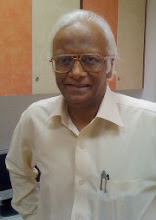MAN
OF THE YEAR
Steve Jobs – the man who redefined
the future of newspapers, the man who redefined the future of music and the man
who redefined the future of entertainment – slipped out of Time magazine’s Man
of the Year Award.
It’s just the same way, Charles
Lindbergh’s trans-Atlantic flight that defined aviation industry escaped Time
magazine editors’ attention. To make up for that, Time magazine started Man of
the Year award in 1927 with Lindbergh. Uri Gagarin, the first cosmonaut to explore
space, did not make it to the Time magazine list.
The notable misses of Time may
read like a list of Nobel laureates: Mother Teresa, whom Princess Diana admired
the most; Diana herself; Dalai Lama, who gets global audience. The key players
of the 20th century, like Jawaharlal Nehru, Mao Zedong, Marshall Tito, Gamal
Abdel Nasser and Ho Chi Minh are left out.
Wallis Simpson (1936), the
American lady who punctured the British royalty with the abdication of Edward
VIII, scored a psychological victory. But Queen Elizabeth II (1952) regained,
in some measure, the lost glory of an empire where the sun never sets. Just the
glory, not the territory.
The beaten Chinese hero, Chiang
Kai-shek, and his wife Soong May-ling (1937), and Philippine’s Corazon Aquino
(1986), who have made little impact on history, are Time’s favourites.
Every American President is
honoured, except Calvin Coolidge, Hebert Hoover and Gerald Ford. The placing of
John Foster Dulles (1954), the man who rocked the world with atom bomb threat, Richard
Nixon (1971), who opened the finest hour of investigative journalism with a
third rate burglary called Watergate, Henry Kissinger (1972), the Lone Ranger
of American foreign policy, George Bush Sr. (90), who invaded Iraq in search of
weapons of mass destruction but found none, and Bush Jr. (2000, 2004), who let
Osama bin Laden hide in Pakistan for his entire presidency, strengthens one’s
suspicion that the goal of American Journalism is politics not truth.
Among the popular American Presidents
rank Franklin Roosevelt (1932, 1934, 1941), the only President elected to a
third term and the only one who won three awards, and Dwight D Eisenhower
(1944, 1959), the only one who won an award before his Presidency.
Joseph Stalin (1939, 1942) and
Adolf Hitler (1938), Winston Churchill (1949) and Nikita Khrushchev (1957), Charles de Gaulle (1958) and Mikhail Gorbachev (1987, 89), and Deng
Xiaoping (1978, 85) and Ayatollah Khomeini (1979) lent a measure of credibility
to the award.
Ted Turner (1991) and the Great
Gates, Melinda and Bill, (2005) make the award prestigious, notwithstanding the
jury. The naming of Albert Einstein as the Person of the Century in 1999, with
Roosevelt and Gandhi as runner-up, is a political coup only Time can come out
with, obviously to cover up the goof-up.
Pope John XXIII (1962) and Pope John Paul II (1994) give the final benediction,
compelling us to say, Amen.
Rupert Murdoch saw the future of
newspapers in i-pad and called it the game-changer. In ten years from now, you
will not find newspapers as we know them today. Instead, you will find them on
your cell phone with an expandable screen, updated every hour.
Newspaper houses will buy
television channels, or vice-versa, and form media conglomerates broadcasting
and disseminating news electronically. Radio, television and online newspapers
will become part of the Multimedia Revolution (Convergence) about to take over
the media scenario. In ten years from now, you will be scrolling i-Newspad,
when your niece or nephew will ask you, `What are these newspapers?
`It was Steve Jobs who killed
them. They were alive and kicking till i-pad,’ you might say – perhaps with
nostalgia for the good old days!



No comments:
Post a Comment